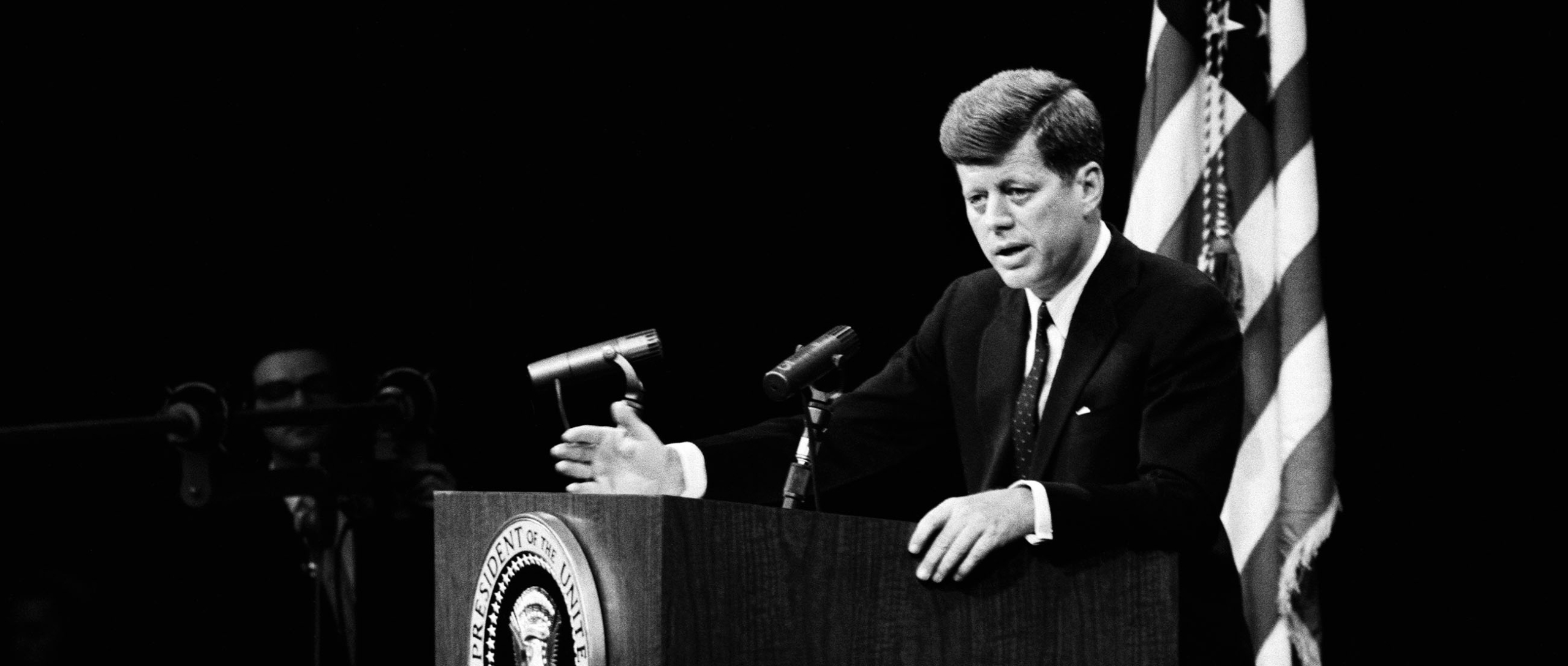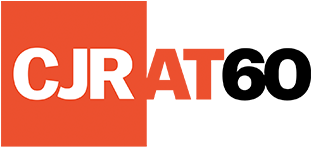The Cuban disaster opened up one of the most wide-ranging exchanges between the national government and the press in many years. In effect, the discussion brought into the open in the United States a question that has affected the press of many countries in times of crisis. To what extent should the press (and other institutions besides) become instruments of governmental policy? Or, to reverse it, does the press have a right to be out of step with national security? The debate since mid-April has been disjointed and scattered. Because of the ultimate importance of the issues, views on either side are brought together here in dialogue form. All of the statements have previously appeared in print.
THE PRESIDENT: On many earlier occasions, I have said—and your newspapers have constantly said—that these are times that appeal to every citizen’s sense of sacrifice and self-discipline.… I am asking the members of the newspaper profession and the industry in this country to examine their own responsibilities—to consider the degree and the nature of the present danger—and to heed the duty of self-restraint which that danger imposes upon us all. Every newspaper now asks itself, with respect to every story: “Is it news?” All I suggest is that you add the question: “Is it in the interest of national security?”
JOHN HAY WHITNEY, New York Herald Tribune: The trouble is that it is really an impossible test. If there were any possible agreement on what is in the interest of security and what is not we should never have had the pressures for censorship, nor the constant struggle of newsmen for access to legitimate news.
THE PRESIDENT: I am not suggesting any new forms of censorship or new types of security classifications.
NEW YORK POST: Who is to define “the interest of national security”?… Will not some argue that the “interest of national security” is damaged by newspaper reports exposing economic and social injustice in our own country?
NEWARK NEWS: The press believes the public’s right to know is a fundamental of democratic government. But where does this right collide with national security?
THE PRESIDENT: The facts of the matter are that this nation’s foes have openly boasted of acquiring through our newspapers information they would otherwise hire agents to acquire through theft, bribery or espionage…
BALTIMORE SUN: A great deal of the kind of published information which the President objects to has actually had its source in government—official publications sometimes, “leaks” very often.
THE PRESIDENT: Details of this nation’s covert preparations to counter the enemy’s covert preparations have been available to every newspaper reader, friend and foe alike…
ROSCOE DRUMMOND, New York Herald Tribune: There is no doubt, I think, that some of the preparations of the Cuban revolution were publicized to an extent that gave the Castro regime information about what was coming, when it was coming and how.… The United States government was so intent upon concealing its part in helping the Cuban invaders that the Administration made no request for any voluntary censorship in handling the pre-invasion story.
NEWSDAY: In this case the American press, ourselves included, has a loud mea culpa to utter. It was, put frankly, a botch all the way around.
TURNER CATLEDGE, The New York Times: If I have any regrets about this story, it is that we didn’t get into it a great deal earlier. Our primary obligation is to our readers. I wouldn’t know how to interpret our obligation to the government.
NEW YORK POST: Is it inconceivable that more inquisitive and venturesome reporting—here and in Cuba—might have given (the President) a sounder appraisal of the military fantasies on which the invasion was based?
JAMES RESTON, The New York Times: It is unfortunate, in a way, that President Kennedy chose to raise this problem of a free press in a cold war immediately after the Cuban episode.… The trouble with the press during the Cuban crisis was not that it said too much, but that it said too little. It knew what was going on ahead of the landing…but it had very little to say about the morality, legality or practicality of the Cuban adventure when there was still time to stop it.… Instead, it was encouraged to put out false information and was actually putting it out.
THE PRESIDENT: We intend to accept full responsibility for our errors; and we expect you to point them out when we miss them.… Government at all levels must meet its obligation to provide you with the fullest possible information outside the narrowest limits of national security.
DAVID KRASLOW, Miami Herald: What happens when the Administration thinks something is in the national interest but the press doesn’t?
THE PRESIDENT: Every democracy recognizes the necessary restraints of national security.… The size, the strength, the location and the nature of our forces and weapons have all been pinpointed in the press to a degree sufficient to satisfy any foreign power. The newspapers which printed these stories were loyal, patriotic, responsible and well-meaning. Had we been engaged in open warfare, they undoubtedly would not have published such items. But in the absence of open warfare, they recognized only the tests of journalism and not the tests of national security.
FELIX McKNIGHT, president, American Society of Newspaper Editors: Any responsible editor faces that same news judgment every day.
W1LLIAM C. BAGGS, Miami Daily News: Once you make a decision to withhold the news, it raises the question of how far you go and when you stop.
THE PRESIDENT: If the press is awaiting a declaration of war before it imposes the self-discipline of combat conditions, then I can only say that no war ever posed a greater threat to our security. If you are awaiting a finding of “clear and present danger,” then I can only say that the danger has never been more clear and its presence has never been more imminent.
MINNEAPOLIS TRIBUNE: Cold and hot war conditions are similar but not completely the same, and the example of censorship during a hot war does not apply today.
THE PRESIDENT: Our way of life is under attack. Those who make themselves our enemy are advancing around the globe. The survival or our friends is in clanger.
MINNEAPOLIS TRIBUNE: A shooting war represents the ultimate engagement of the nation, and many freedoms must be inhibited in the interest of sheer survival. A cold war, however, does not represent such complete involvement; there is still a further, ultimate step remaining—entry into a shooting war. If our government acts foolishly, slothfully, or otherwise unwisely, we may find ourselves propelled into a global, nuclear war. The only way our citizens can keep an eye on their officials in this life-and-death issue is through alert, responsible news reporting.
THE PRESIDENT: In times of clear and present danger, the courts have held that even the privileged rights of the First Amendment must yield to the public’s need for national security.
NEW YORK HERALD TRIBUNE: In days of peril especially, the country needs more facts, not fewer.
MILWAUKEE JOURNAL: President Kennedy’s insistence upon full, voluntary concern for national security by the nation’s press in these times, no less than in a hot war, is reasonable and proper.
WILLIAM RANDOLPH HEARST, JR., The Hearst Newspapers: He makes clear that we are in a war. Having been a war correspondent, I can well understand the need for security.
THE PRESIDENT: Should the press of America consider and recommend the voluntary assumption of specific new steps or machinery, I can assure you that we will cooperate wholeheartedly with those recommendations.
PHILADELPHIA INQUIRER: It may be advisable from the standpoint of practical newspapering for the Government to organize an “office of cold war information,” which would have no powers of censorship but could serve as a clearinghouse for queries from the press about what violates national security in specific cases.
NEW YORK HERALD TRIBUNE: There is no need for further restrictive machinery.
McKNIGHT: Our position is that there is no necessity for it at the moment…
THE PRESIDENT: Perhaps there will be no recommendations. Perhaps there is no answer to the dilemma faced by a free and open society in a cold and secret war.
TOP IMAGE: John F. Kennedy in Washington, DC, April 14, 1961; Photo by Michael Ochs Archives/Getty Images



